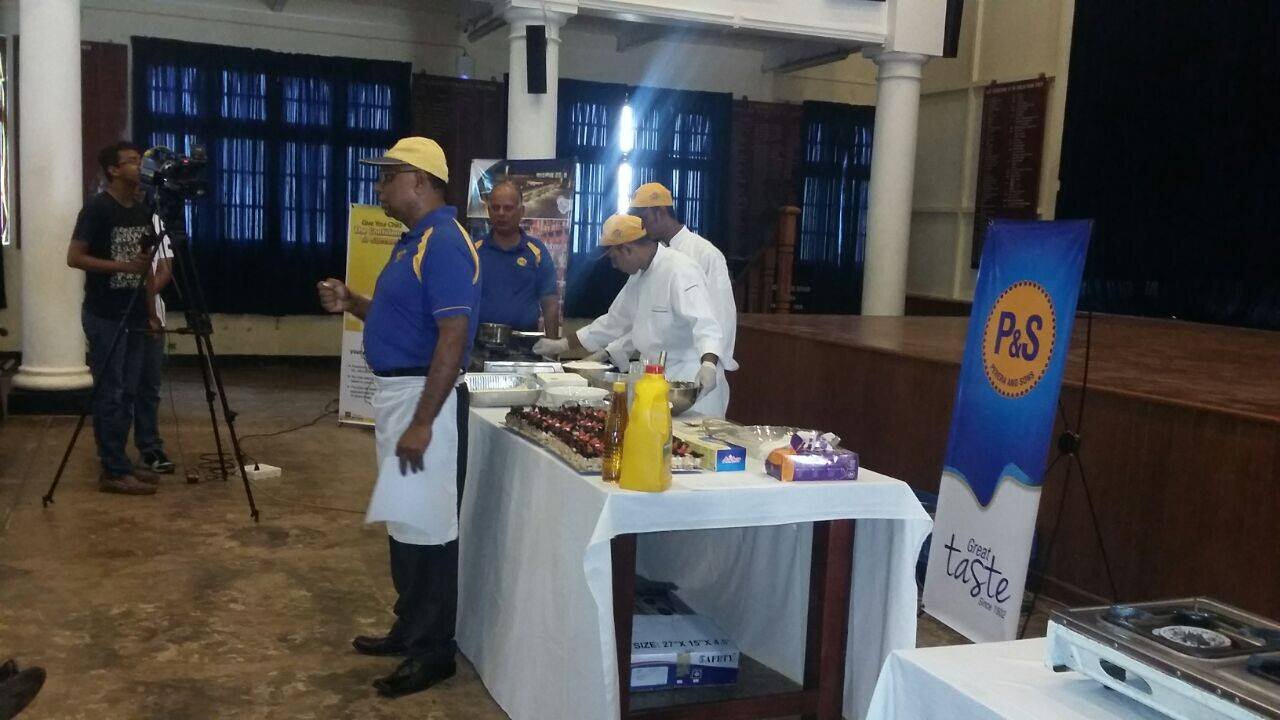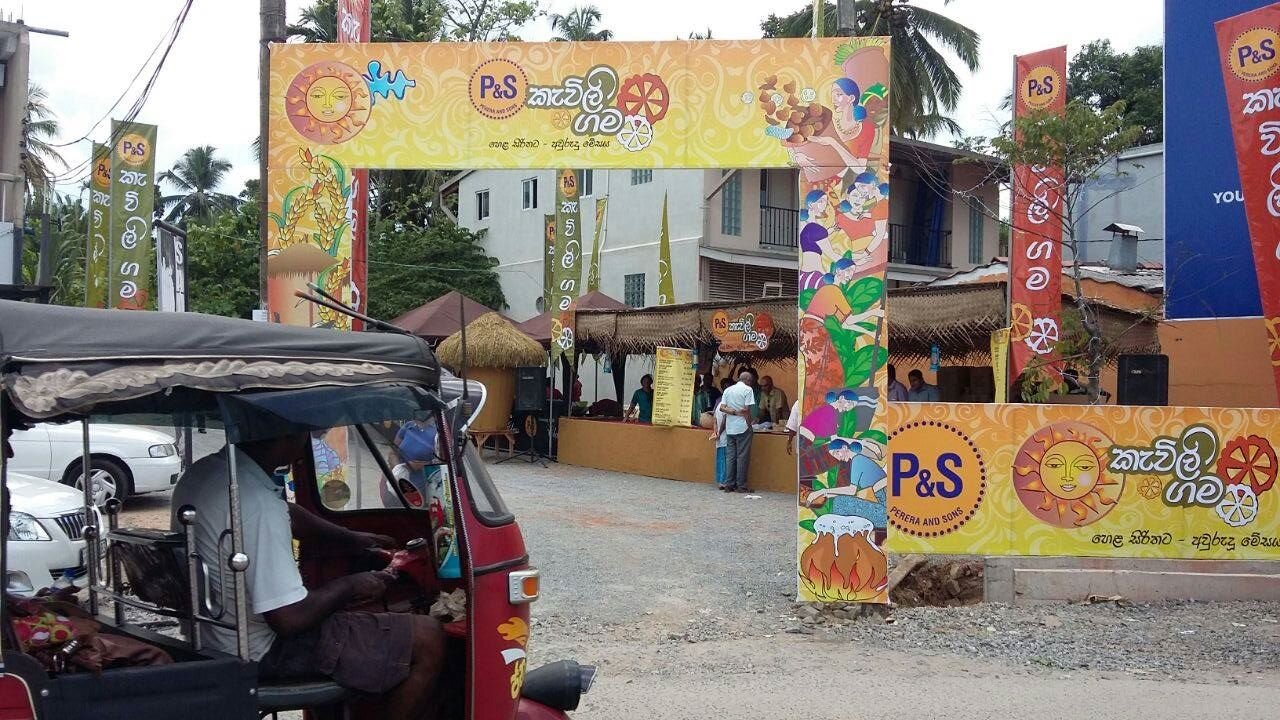Great-Grandfather’s legacy proudly lives on
Remember those Swiss rolls, fish buns, patties & gateaux?
We humbly and proudly feature this article with Thomain heritage! G.N.P, Gihan and Avishka Perera were ace tennis players during their respective days at STC, all having captained College tennis with distinction. Thank You Gihan (STC 1972-1982), Head of P&S for the company’s on-going support and sponsorship at a national, humanitarian and parochial nature towards College. A few photos attached post read.
When K.A. Charles Perera baked his first batch of bread in 1902, he could have never imagined that he would go on to feed several generations of Sri Lankans. Nearly 120 years later, that humble little bakery which carried his name on the door—Perera & Sons, has gone on to become one of the largest quick service restaurant chains in the country. Not only has the company grown by leaps and bounds, but it has also remained a family-owned business throughout.
Running a QSR chain with more than 160 outlets is no easy task but Managing Director Gihan Perera seems to have it all figured out. A fourth-generation member of the family, he told us how Perera & Sons (P&S) managed to get to where it is today.
Q: Can you tell us about the history of P&S? How did it all begin?
It all started in the village of Kodagoda in the south of Sri Lanka. K.A. Charles Perera, my great grandfather, and the founder of P&S, decided to make a living by baking bread and selling it from door to door. His operation was as rudimentary as it could be, and the fledgling business had only two assets—an old baking tray and its founder’s ingenuity.
In early 1930’s, my great grandfather sold the business to his son (and my grandfather), Kodagoda Albert Perera. In a bid to grow the business, my grandfather started producing and selling iced cakes, birthday cakes, wedding structures and wedding cakes in the late 1930s. After his demise in 1968, his son Sarath Kodagoda and daughters Rukmini, Sunitha, Srima and Shanthani took over the business. I joined the company in 1986 and in 1997, took over the reins. I have been at the helm ever since, but nothing came on a platter. I had to start at the bottom and prove that I could shoulder the responsibility.
When I started work, we had already begun our journey towards becoming what we are today. One of the first things we did was to inject a culture of professionalism into the business. In 1993, we recruited our first General Manager from outside the family. Since then, we have been on a long march forward, growing bigger and stronger with every passing year. But the journey is not over yet, and there is a long way to go.
Q: What is the key to P&S’ growth in recent years?
In terms of business processes, I would say quality and availability. Our strategy is to maintain a strong presence in key towns like Kandy, Kurunegala, Dambulla, Pelmadulla, Kataragama, Matara, Galle, Hikkaduwa, Anuradhapura and Mihintale. We have outlets in all these areas and they’re served by regional production units. This has allowed us to expand our retail footprint while also maintaining a consistently high level of quality. Every pastry, bun, or cake you buy from any P&S outlet anywhere in the country will taste the same and will always be freshly made. Each region has its own manager who is tasked with driving growth in the area. This decentralisation allows us to devote an equal amount of attention to each region.
But more than any of that, our team and culture have been our biggest strengths. Our success in recent years is all down to the P&S extended family of staff members, their loyalty, work ethic and determination to see P&S succeed.
Q: Transitioning a company over several generations is difficult. How did P&S manage this?
Successfully passing the baton from generation to generation is never easy. Even in our case, there were a lot of ups and a few downs, but at the end of the day, it all comes down to being united as a family, so that we can focus on looking after our people and serving delicious food to our customers. Anything else is nothing but a distraction and can be very detrimental to the health of any family managed business.
Q: Today, P&S has outlets all around the country. You sell a product that is easily perishable and where freshness is a key buying factor. It’s not easy to check all the boxes. How did you overcome this operational challenge?
We have over 160 outlets across the country. These outlets are served by a network of 12 well-equipped and hygienic production units in key locations, which means every outlet is supplied with fresh goods every day. In certain areas, we source some of our raw materials from local farmers. We take pride in putting a great deal of care into producing each and every item we sell. That strong commitment helps us to ensure that the customer gets quality products from any P&S outlet in the country.
Q: In an economic environment where costs are ever increasing, how does P&S make sure that the product portfolio remains affordable for the masses?
We maintain a relentless focus on keeping our supply chains as efficient as possible. This allows us to negotiate and purchase raw materials at competitive prices. To avoid creating a monopoly in the market, we have made it a habit to source from multiple vendors.
Q: Do you have plans to further grow your outlet footprint? If yes, which model (franchise or owned) would you prefer, and why?
Yes, we do have plans to increase our retail footprint. I would not call it a preferred model, but we have an interesting phenomenon where around 50% of our outlets are run by franchisees. We see our franchisees more as our ‘business partners’. Of this, a significant number of business partners are our very own former employees. We actually encourage them to open outlets in their hometowns and support them in any way we can. We want to create entrepreneurs within and outside the company.
Q: Back in the day, you only competed with other small bakeries and bakery chains. But now, you must compete with supermarkets and a range of other competitors as well. What is your perspective on this, and how do you compete?
We look at competition as a challenge to improve our business. We conduct regular research to know what competitors are offering and what customers need from us. We regularly benchmark ourselves against other large players, so that we can ‘up our game’. In that sense, we welcome competition.
Q: How did COVID-19 impact you and how did you adapt to it?
The pandemic was unprecedented and came as a complete shock to us. Of course, the safety of our employees was our primary focus. Within a day or two we had to close all our production units and outlets. Perishable items had to be discarded and staff had to be sent to their villages. It was very chaotic, and everyone else in the country had to go through the same experience. It created a lot of uncertainty, especially for our valued stakeholders’. We were forced to adapt to the conditions created by the lockdown, though there was a lot of uncertainty regarding the future.
Within a couple of days, we were able open up and serve our customers once again. We obtained curfew passes, and with the approval of Public Health Inspectors (PHI) of the areas, we were able to put together a barebones operation to bake everyday essentials and deliver them to the doorsteps of our customers through various online platforms. We adhered to all health guidelines given by the government authorities as well.
After a few days, we set up our own web store and were able to offer a wider range of items to our customers. Our own vans went from door to door selling our products in approved areas, just like how a choon paan would.
We didn’t forget frontline workers who were working tirelessly to keep us safe, and we provided free bakery items, groceries and vegetables to neighbourhood temples, the Sri Lanka Army, the Sri Lanka Air Force, the General Hospital in Colombo, and the Infectious Diseases Hospital in Gothatuwa.
Q: Finally, what are your plans for the future?
We want to be the most sought-after quick service restaurant chain in the nation. The pandemic also brought about a paradigm shift which we are also adapting to. Consumer behaviour drastically changed almost overnight, and people have become very comfortable with e-commerce. We plan to take full advantage of these developments. Before COVID19 hit, we had plans to venture beyond the shores of Sri Lanka and set up shop in other countries. Those ambitions remain unchanged, and we will soon be able to take the signature P&S taste and quality global!
There are also lots of new dining trends emerging as an entirely new generation comes of age. Fusion food, healthy diets, and a willingness to try out new cuisines has opened up a lot of opportunities. These days, there is a lot of diversity in the culinary world as well. We are keeping an eye on this and will try to cater to these cravings of a new generation of consumers. Even if I may not be the one to do it, I am sure that the fifth generation of our family surely will!















